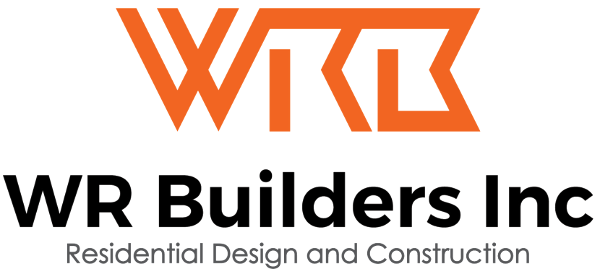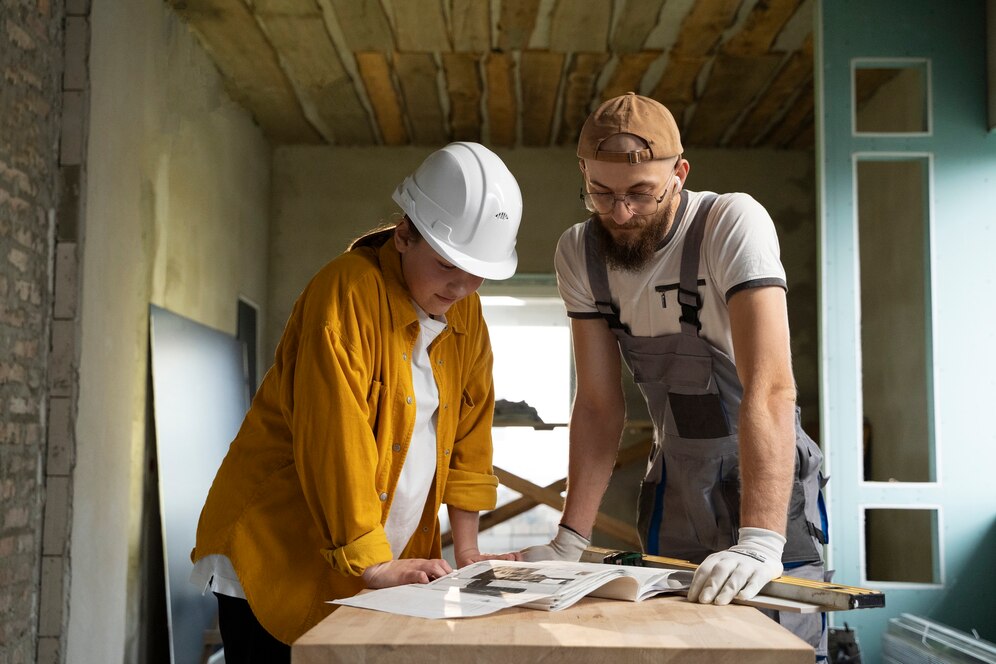Hiring a general contractor is a significant decision that can impact the success of your construction project. Whether you’re planning a home renovation or constructing a new building, choosing the right professional is crucial. In this blog, we’ll discuss the key factors to consider when hiring a general contractor to ensure your project runs smoothly and efficiently.
Understanding the Role of a General Contractor
Before diving into what to look for, it’s essential to understand the role of a general contractor. They are responsible for overseeing the entire construction project, managing subcontractors, securing permits, and ensuring the work meets quality standards.
General contractors function as the quarterback of a construction project. Their role is multi-faceted, requiring a blend of technical acumen and managerial skills. They coordinate various tradespeople such as electricians, plumbers, and carpenters, making sure each task is completed per the project timeline. A proficient contractor also ensures that all building codes and regulations are met, reducing the risk of costly delays and legal complications.
Another key role of the general contractor involves budgeting and cost management. They are typically responsible for ensuring that the project stays within the agreed-upon budget. This involves negotiating with suppliers and subcontractors to get the best prices and avoiding overruns. It’s their job to provide accurate cost estimates and manage the project’s finances effectively, thereby helping clients to maximise their investment.
In addition to these responsibilities, a general contractor also serves as the primary point of contact for the client. They are responsible for maintaining open lines of communication throughout the project, updating clients on progress, and addressing any concerns promptly. This ensures that the project proceeds smoothly and any potential issues are dealt with efficiently.
Checking Credentials and Experience
One of the first things you should do is check the contractor’s credentials and experience. Make sure they are licensed and insured. Experience in the specific type of project you’re undertaking is also crucial, as it ensures they have the necessary skills and knowledge.
Credentials provide a baseline for the contractor’s legitimacy. Not only should the contractor hold a valid license, but their insurance must cover both workplace injuries and property damage. This aspect is particularly vital as it protects you from potential liabilities. For example, a licensed and insured contractor from WR Builders Inc. can handle complex projects, such as large-scale home renovations, while mitigating risks.
Experience is another critical factor. A seasoned contractor will have a portfolio of completed projects that are similar in scope to your own. This experience translates into a deeper understanding of what could go wrong and how to prevent those issues. For instance, an experienced contractor might be familiar with specific challenges like retrofitting an old home with modern amenities. The depth of experience becomes apparent when they can anticipate and swiftly resolve problems, keeping the project on track.
Reading Reviews and Asking for References
Reviews and references can provide valuable insights into the contractor’s reliability and quality of work. Speak to previous clients to understand their experiences and whether the contractor delivered on their promises.
Reading online reviews can give you a quick snapshot of the contractor’s reputation. Websites like Houzz provide a platform for clients to rate and review contractors, giving you an opportunity to hear firsthand about their capabilities and reliability. However, be cautious of reviews that seem overly positive or overly negative as they might not provide a fair representation of the contractor’s work.
Asking for references is another vital step. Contact past clients directly to ask about their experiences with the contractor. Questions to consider include: Was the project completed on time and within budget? Were there any hidden costs? How effectively did the contractor communicate throughout the process? These questions can help you gauge whether the contractor is likely to meet your expectations. Additionally, visiting previous job sites can give you a tangible sense of the contractor’s work quality.
Ensuring Clear Communication
Effective communication is key to the success of any project. Ensure the contractor is accessible and communicates clearly. They should be able to explain the process, timelines, and any issues that arise in a way that’s easy to understand.
The importance of clear communication can’t be overstated. From the initial consultation to the project’s completion, a good contractor will keep you informed every step of the way. Regular updates and transparent discussions about progress and any potential setbacks are crucial. This ensures that you are never left in the dark about what’s happening with your project.
Communication goes beyond just updates. It involves actively listening to your needs and aligning them with the project’s goals. A contractor who values clear communication will promptly address any concerns or questions you have, reducing misunderstandings and ensuring that the project proceeds smoothly. This is particularly vital during complex projects where multiple stakeholders are involved. Choosing a contractor from an organization committed to such practices, like WR Builders Inc., can greatly benefit your project.
One way to gauge a contractor’s communication style is during the initial consultation. Are they listening to your ideas and providing thoughtful feedback? Their willingness to stay engaged and responsive during these early stages can be a strong indicator of their commitment to maintaining clear communication throughout the project. Effective communication fosters a collaborative environment, ensuring that your vision is realized as accurately as possible.
Getting Detailed Estimates
A detailed and transparent estimate is essential. It should break down the costs for labor, materials, and any other expenses. Compare estimates from different contractors to ensure you’re getting a fair price.
Understanding the financial side of a project can prevent many headaches down the road. A comprehensive estimate will detail every aspect of the project, from material costs to labor, and even permit fees. This level of detail is necessary to avoid unexpected costs and ensures that both parties are aligned on the project’s budget from the start. Choosing a contractor who can provide such a detailed breakdown demonstrates their professionalism and commitment to transparency.
When evaluating multiple estimates, don’t automatically choose the lowest bid. Sometimes, a low estimate can be an indicator of subpar materials or a lack of detailed project planning. It’s vital to examine the scope of work in each estimate and compare them on an apples-to-apples basis. This will help you identify which contractor is offering the best value for your investment, not just the lowest price.
Furthermore, a detailed estimate also serves as a financial roadmap, offering a baseline against which you can measure the actual costs as the project progresses. This can help you stay within budget and provide a clear framework for addressing any changes or adjustments that may arise during the construction process. Transparency in financial matters builds trust, providing peace of mind that you are making a wise investment.
Evaluating Payment Schedules
Discuss payment schedules upfront. A reputable contractor will have a payment plan that reflects the progress of the project. Be wary of contractors who ask for a large upfront payment.
An appropriate payment schedule ensures that both parties are protected. Typically, a reasonable deposit is requested at the start, followed by progress payments at various milestones throughout the project. This structure incentivizes the contractor to stay on schedule and ensures that you only pay for work that has been completed satisfactorily. Contractors who demand large upfront payments might be red flags, indicating potential cash flow problems or a lack of resources.
A staggered payment plan also offers you a level of financial control, allowing you to assess the quality and progress of the work before making subsequent payments. This arrangement can mitigate disputes and keeps both parties focused on achieving the project’s milestones. Be sure to document the agreed-upon payment schedule in the contract to avoid any misunderstandings later on.
Understanding Contract Terms
Review the contract carefully. It should outline the scope of work, timelines, payment schedule, and how any changes will be handled. Make sure you understand all the terms before signing.
The contract serves as the blueprint of your project, detailing every aspect from start to finish. It’s crucial to understand all terms and conditions to avoid surprises. A comprehensive contract should include a detailed scope of work, itemized list of materials, timeline, payment schedule, and plan for adjusting the project scope if unexpected issues arise. Contracts also often contain clauses related to handling delays or disputes, which can be pivotal if things don’t go as planned.
If you find any part of the contract unclear, don’t hesitate to ask for clarification. This is your opportunity to negotiate terms and make sure your interests are adequately protected. Ensuring that the contract includes all verbal agreements and understandings in writing safeguards against future misunderstandings or conflicts. A well-drafted contract by a contractor from WR Builders Inc. will provide a solid foundation for a successful project.
Final Thoughts on Hiring a General Contractor
Selecting the right general contractor can make or break your construction project. By keeping these factors in mind and doing your due diligence, you can find a reliable professional who will deliver quality work on time and within budget. Remember, the key to a successful project lies in clear communication, experience, and trustworthiness.




